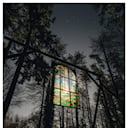Which Charles Dickens' novel is set during the Gordon Riots?
"Barnaby Rudge: A Tale of the Riots of Eighty" (commonly known as "Barnaby Rudge") is a historical novel by British novelist Charles Dickens. "Barnaby Rudge" was one of two novels (the other was "The Old Curiosity Shop") that Dickens published in his short-lived (1840–1841) weekly serial Master Humphrey's Clock. "Barnaby Rudge" is largely set during the Gordon Riots of 1780.
The Gordon Riots of 1780 began as an anti-Catholic protest in London against the Papists Act of 1778, which was intended to reduce official discrimination against British Catholics. The protest evolved into riots and looting. The stated intention of the Papists Act of 1778 was, as its preamble notes, to mitigate some of the official discrimination against Roman Catholics in the Kingdom of Great Britain. It absolved Catholics from taking the religious oath when joining the British Armed Forces as well as granting a few and limited liberties.
The story follows a developmentally delayed man , his raven, and his mother who are inadvertently caught up in a mob. Barnaby is persuaded to join the protest that results in the burning of churches and homes. Barnaby is arrested and sentenced to hang but is later pardoned. Grip the raven inspired Edgar Allan Poe to write his most famous poem, "The Raven." Poe had written a review of "Barnaby Rudge" saying that the raven should have served a more symbolic prophetic purpose. The novel was made into a 13 episode British TV series in 1960.
More Info:
en.m.wikipedia.org




